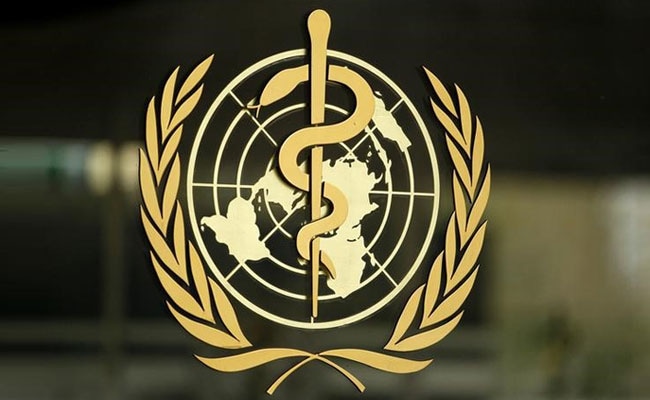
The logo of World Health Organization.
Geneva:
The World Health Organization on Thursday announced that Liberia, recently ravaged by Ebola, was free of the virus, 42 days after the last confirmed case passed a second negative test.
"WHO declares Liberia free of Ebola virus transmission in the human population," the UN health agency said in a statement.
WHO, which had previously declared Liberia Ebola-free in May only to see the deadly virus resurface six weeks later, said the country had now entered a 90-day period of heightened surveillance.
It hailed Liberia's "successful response" to the recent re-emergence of Ebola, when six people were infected, including two who died.
"Liberia's ability to effectively respond to the outbreak of Ebola virus disease is due to intensified vigilance and rapid response by the government and multiple partners," WHO said.
Liberia was long the hardest hit in the west African Ebola outbreak that began in December 2013 and which infected more than 28,000 people and claimed more than 11,000 lives mainly in Liberia, Guinea, and Sierra Leone.
More than 10,500 of those infections and 4,800 of the deaths occurred in Liberia.
The virus is spread among humans via the bodily fluids of recently deceased victims and carriers showing symptoms, including vomiting, diarrhoea and -- in the worst cases -- massive internal and external bleeding.
A country is considered free of Ebola transmission once two 21-day incubation periods have passed since the last known case tests negative for a second time.
But experts warn that even after 42 days have passed the danger is not over, considering that some Ebola cases are still surfacing in neighbouring Guinea and Sierra Leone.
The Ebola virus has been found lingering in the semen of male survivors many months after they test negative.
"WHO declares Liberia free of Ebola virus transmission in the human population," the UN health agency said in a statement.
WHO, which had previously declared Liberia Ebola-free in May only to see the deadly virus resurface six weeks later, said the country had now entered a 90-day period of heightened surveillance.
It hailed Liberia's "successful response" to the recent re-emergence of Ebola, when six people were infected, including two who died.
"Liberia's ability to effectively respond to the outbreak of Ebola virus disease is due to intensified vigilance and rapid response by the government and multiple partners," WHO said.
Liberia was long the hardest hit in the west African Ebola outbreak that began in December 2013 and which infected more than 28,000 people and claimed more than 11,000 lives mainly in Liberia, Guinea, and Sierra Leone.
More than 10,500 of those infections and 4,800 of the deaths occurred in Liberia.
The virus is spread among humans via the bodily fluids of recently deceased victims and carriers showing symptoms, including vomiting, diarrhoea and -- in the worst cases -- massive internal and external bleeding.
A country is considered free of Ebola transmission once two 21-day incubation periods have passed since the last known case tests negative for a second time.
But experts warn that even after 42 days have passed the danger is not over, considering that some Ebola cases are still surfacing in neighbouring Guinea and Sierra Leone.
The Ebola virus has been found lingering in the semen of male survivors many months after they test negative.
Track Latest News Live on NDTV.com and get news updates from India and around the world

